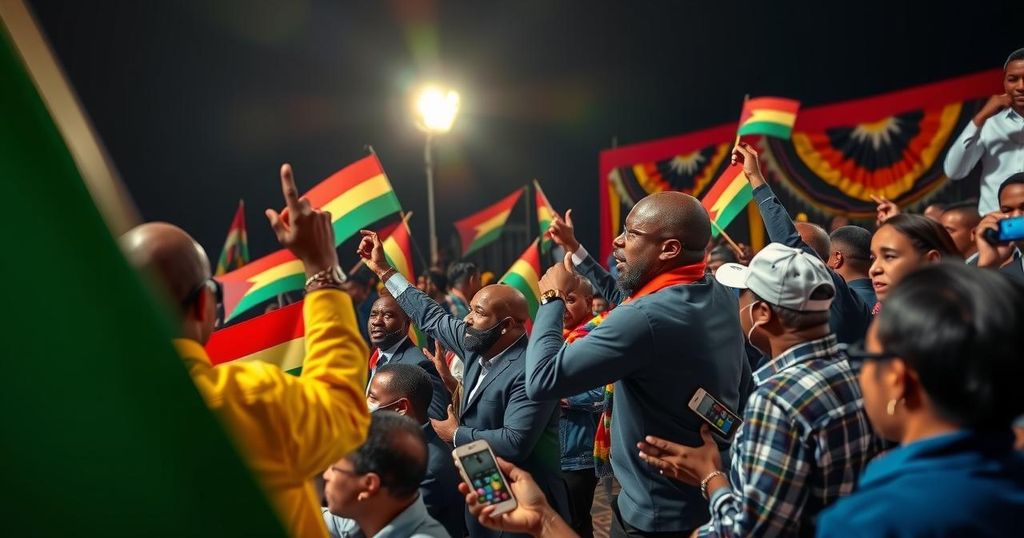Botswana’s Upcoming Election: A Test for Long-Standing Ruling Party BDP and President Masisi
Botswana’s election will determine if the Botswana Democratic Party (BDP), which has maintained power for 58 years, will continue governing as President Mokgweetsi Masisi seeks a second term. Economic adversity, particularly from falling diamond sales, complicates the political scenario, with higher unemployment and needed policy reforms prompting a more competitive electoral race against opposition parties.
Botswana is set to conduct a significant election where voters will determine the fate of the Botswana Democratic Party (BDP), a political entity that has ruled the nation for 58 years since it gained independence from British colonial rule in 1966. President Mokgweetsi Masisi, who previously served as a high school educator and United Nations official, is seeking re-election for a second and final term. Ahead of the election, the BDP acknowledges the pressing economic difficulties facing Botswana, particularly due to a global downturn in diamond demand, which constitutes a major portion of the economy, contributing to high unemployment rates, especially among the youth. Observers note that the significant economic challenges may have narrowed the gap between the ruling party and its opposition, including figures such as Duma Boko, Dumelang Saleshando, and Mephato Reatile, who are vying for the presidential position. As the election unfolds, the BDP is promising policy adjustments aimed at diversifying the economy and addressing societal concerns.
Botswana, situated in Southern Africa, is renowned for its stable democracy and relatively high living standards in the region. However, in recent times, it has faced notable economic hurdles due to its heavy reliance on diamond exports, which account for over 80% of its export earnings. The current unemployment rate has surged to 27%, exacerbating the need for urgent policy reform. The ruling Botswana Democratic Party has acknowledged the necessity for changes in economic policy to address these challenges and is proposing a shift towards mineral processing, agriculture, and tourism to create new revenue streams.
The upcoming election in Botswana presents a crucial moment for the nation, as voters decide whether to continue supporting the Botswana Democratic Party amidst economic difficulties and unrest within the political landscape. With the potential for significant policy shifts and a competitive atmosphere from various opposition candidates, the election could reshape the future governance of Botswana.
Original Source: apnews.com




Post Comment